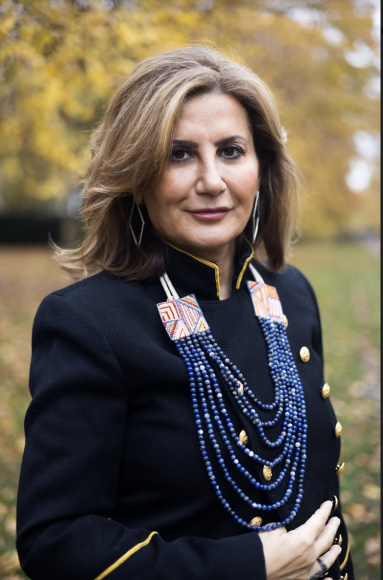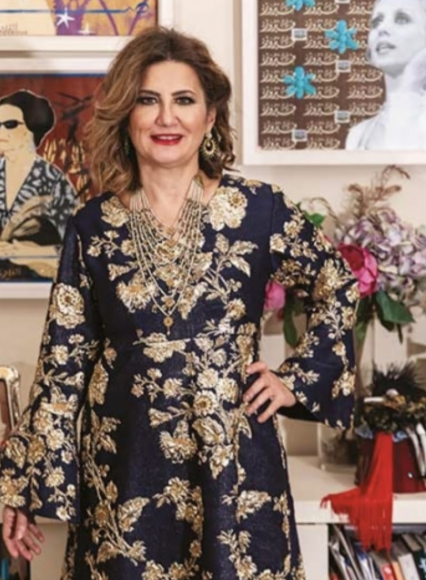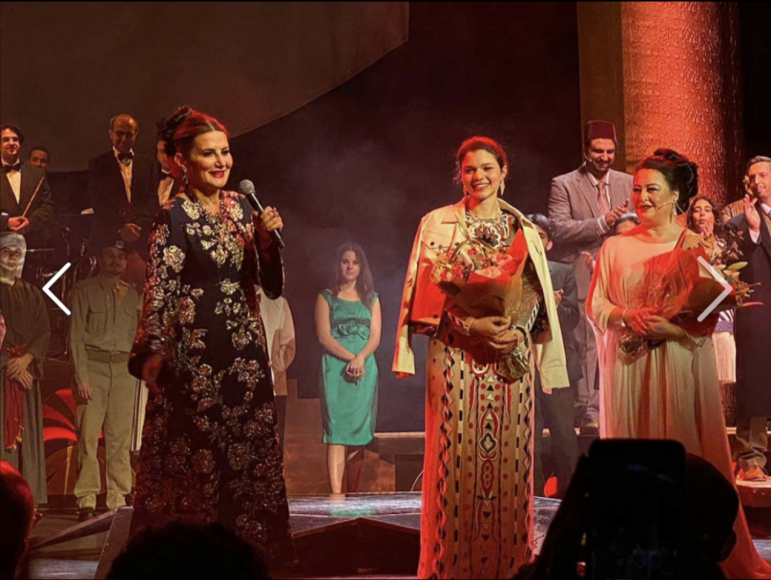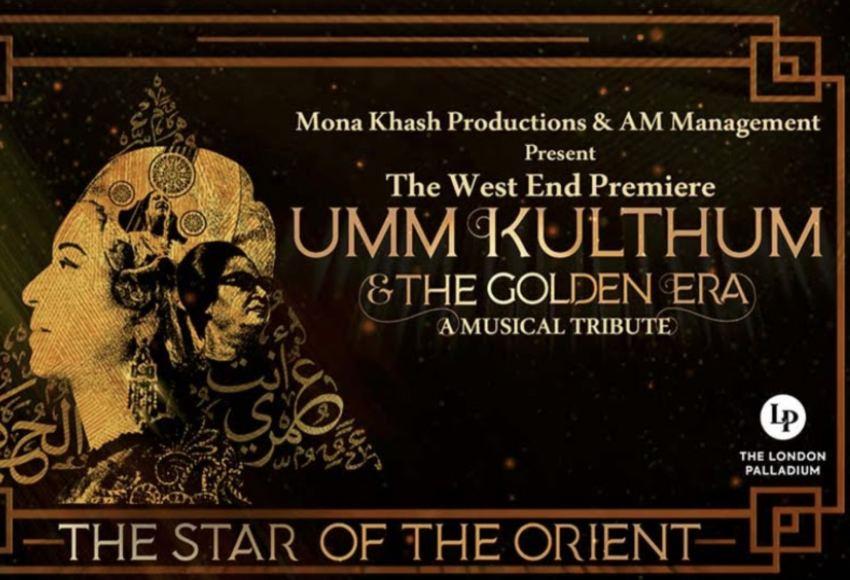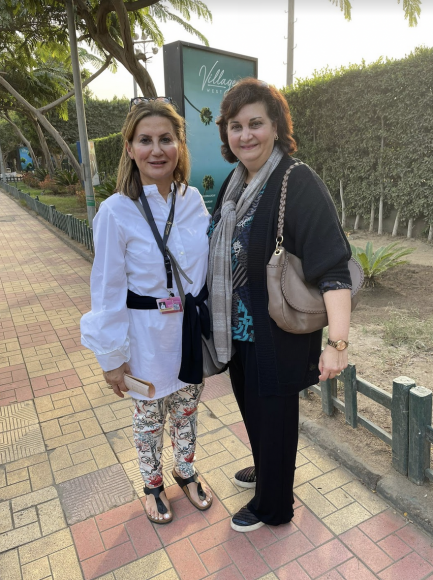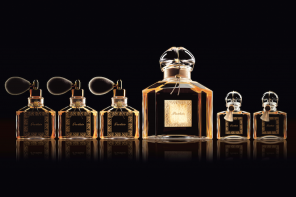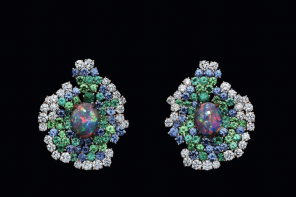Considered as an ambassador of Arab culture, from Saudi Arabia to the world, Mona Khashoggi is an entrepreneur, a filmmaker and a humanitarian. She is simply a woman of many hats who promotes Middle Eastern Arts on the international scene.
Mona, tell us more about your academic and career highlights
I studied at SOAS University of London, the school of Oriental and African studies and my masters was in Politics, Law and Anthropology. That is why I am interested by the study of people in general, and the Middle East in particular and promoting our culture to the West.
I’ve curated many events for charity and have beeen active in the culture industry for over 20 years now. I co-founded a foundation with a group of Saudi ladies called Mansoojat, and we worked closely with the Victoria and Albert Museum, the British Museum on exhibitions that showcased traditional costumes from Saudi Arabia.
I have done immersive theaters with orphans in Saudi to educate them culturally, a form of workshops that brought the countries to them and taught them the national arts and crafts. We took them out of their world into a fantasy world. Hence all this has enriched my artistic route.
Your upbringing must have influenced the way you create
Indeed, I am Saudi but I left my country at the age of five and grew up in Lebanon and attended school in Beirut. I used to practice the traditional Dabke dance at school, so I lived on the stage. Theater and music are a part of me.
I come from a very artistic creative family; my sisters are writers and artists. Samira Khashoggi (Bint El Jazira Al Arabia) is the first Saudi novelist and a filmmaker, and we grew up surrounded by Arab legends like Umm Kulthum, Abdel Halim Hafez, Sabah, Warda and more. I would always attend musicals by Fairuz and the Rahbani brothers. Soheir and Samia are artists. Samia founded Saudiyat – The first female Saudi Artists exhibition in Jeddah years ago.
And speaking of Umm Kulthum, your recent musical dedicated to her was a huge success, tell us more
My west-end production at the London Palladium musical is called Umm Kulthum and the Golden Era. It is a tribute to the composers, poets and musicians of our time. Umm Kulthum is relatable because she has a rags-to-riches kind of story. She came from a small village in the Nile Delta and her father was a Sheikh. However, she remained humble, and always remembered where she came from, and most importantly was loyal to her faith and country. She is a role model to us Arab women, inspiring us to excel and be strong.
Her songs are mesmerizing and the lyrics are so deep, they are eternal. It’s not only about the voice, but her knowledge of the Arabic language. She is the opium of the masses. And above all she was a feminist and was the decision maker in selecting her music and managing her career.
My play is a tribute to her and the army of composers behind her hits Like the Maestro Mohamed Abdel Wahab. It was a lot of hard work and weeks of research like listening to all her music, watching interviews and imagining the choreography, the costumes and every single element on stage. It took 3 years in the making from the idea to the stage. The lead actress/singer was Syrian-Opera singer Lubana Al Quntar, who is a cousin of singer Asmahan. Most of the cast was British from the west end, the Broadway of the UK, and it was launched at the iconic Palladium. It was so humbling to be praised by the great grand-niece of Umm Kulthum, Sanaa Nabil, and when young attendees started spotifying her music after the show.
Umm Kulthum didn’t belong to Egypt alone, but to the world. Bono, Mick Jagger, Bob Dylan all admire her songs. Maria Callas said her voice was irreplaceable, and French President Charles de Gaulle called her “The Lady.” So that’s why I believe that Umm Kulthum the musical should become a film for the world to see.
So, what are your thoughts about the arts industry in the Middle East?
I believe that music and dance, when done respectfully, should be celebrated rather than forbidden. I like to promote our culture and religion to the west in a positive way that highlights tolerance and peace.
In the past, films were all about women being abused or having a weak role in society but all this has changed now. We are sitting on a goldmine of information. We have so many rich stories in the Arab world that need to be told and brought to the global screen. I hope we see more of that soon. I set the trend and hope that I have inspired others to follow in this field.
What are some of your upcoming projects?
I have completed courses with the Saudi Film Commission as I am planning to work on a few feature films. I have finished my first screen script. Thanks to the film commission, Tish school of film, BFI and Mohamed Hefzy.
Orange Jaffa Groves is a novel, a play and a film. It’s a homage to the forgotten children and people of Palestine. It showcases old Palestine and how people lived peacefully in a multi-religious and cosmopolitan land in the 1930’s & 1940’s, before the Nakba. It promotes peace and is a love story in a warzone. I have grown up in a war-torn country, so it feels natural that I sympathize with immigrants who lost their home.
Another project is Khashoggi’s Diamond. Khashoggi, means spoon-maker in Turkish., The story goes that our grandfathers found a diamond and sold it to the Ottoman Sultan that is displayed now in the Topkapi Palace Museum, it’s 86 carats and is known as the largest diamond. Essentially, I want to trace back the journey of this humble spoon maker Kashikji, from a remote village in Turkey all the way to Sultan’s palace to Hijaz in Medina, where my family comes from.
Overall, I want to make a few meaningful and cultural films and plays for the younger generation and the western world. It is time that we export stories.
Finally, what are your thoughts about the future of the industry in Saudi Arabia?
The Saudi film industry is still young and growing. I hope we’ll have a film school and training programs as we need to invest locally rather than abroad. Through my company Mona Khash Production, I am doing so on a smaller scale. It is all about the story!
I have a short film coming up that will bring together Saudi women (actors, director, composer), because we are capable of creating. It’s time for Saudi women to shine. They are hardworking, they are mothers, designers, CEOs and more. And you can feel the change seeing women and the youth working all around the sectors in Saudi Arabia.
Text by Victor Gee
Cover Photo: Natasha Wilde

